ansible–playbook用法与自己的yml范例总结
介绍
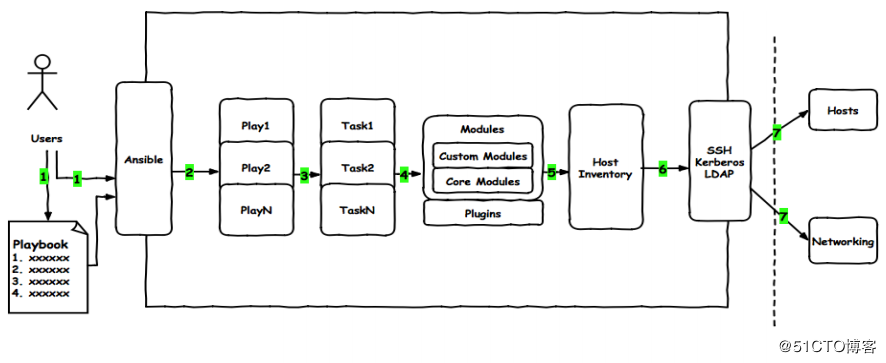
命令用法
- 运行playbook的方式
1 | ansible-playbook <filename.yml> ... [options] |
- 常见选项
–check -C 只检测可能会发生的改变,但不真正执行操作
–list-hosts 列出运行任务的主机
–list-tags 列出tag
–list-tasks 列出task
–limit 主机列表 只针对主机列表中的主机执行
-v -vv -vvv 显示过程 - 示例
ansible-playbook file.yml –check 只检测
ansible-playbook file.yml
ansible-playbook file.yml –limit websrvs
Playbook核心元素
- Hosts 执行的远程主机列表
- Tasks 任务集
- Varniables 内置变量或自定义变量在playbook中调用
- Templates 模板,可替换模板文件中的变量并实现一些简单逻辑的文件
- Handlers 和 notity 结合使用,由特定条件触发的操作,满足条件方才执行,
否则不执行 - tags 标签 指定某条任务执行,用于选择运行playbook中的部分代码。ansible
具有幂等性,因此会自动跳过没有变化的部分,即便如此,有些代码为测试其
确实没有发生变化的时间依然会非常地长。此时,如果确信其没有变化,就可
以通过tags跳过此些代码片断
playbook执行的文件为yml格式
- 此为范例
1 |
|
与shell脚本对比
SHELL脚本
1 |
|
Playbook定义
1 | --- |
handlers和notify结合使用触发条件
- Handlers
是task列表,这些task与前述的task并没有本质上的不同,用于当关注的资源发生
变化时,才会采取一定的操作- Notify此action可用于在每个play的最后被触发,这样可避免多次有改变发生
时每次都执行指定的操作,仅在所有的变化发生完成后一次性地执行指定操作。
在notify中列出的操作称为handler,也即notify中调用handler中定义的操作
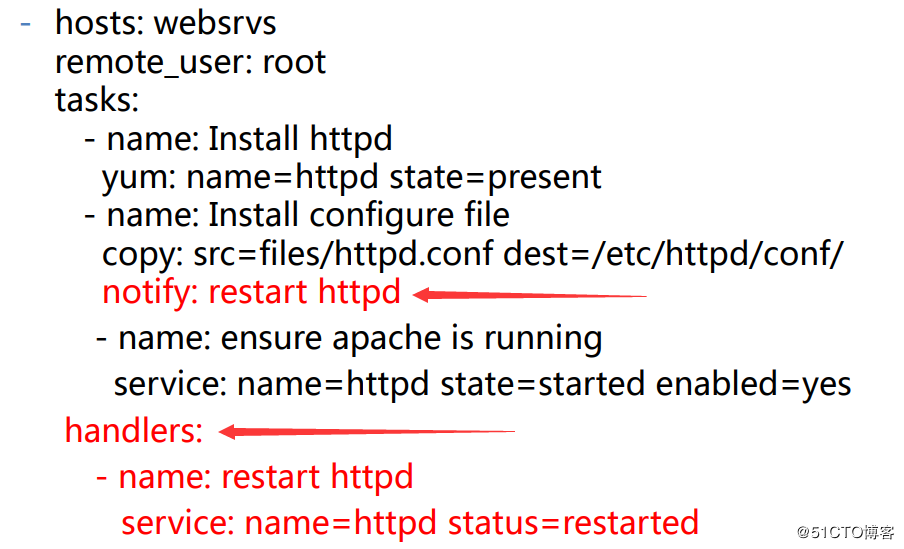
自己的yml范例
1 | #install httpd |
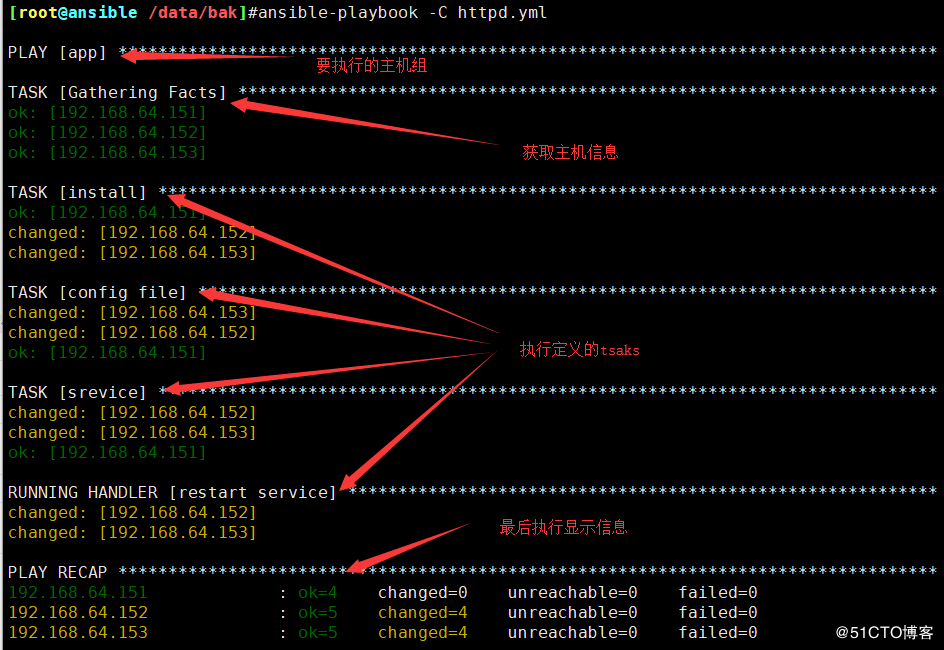
item和变量使用
1 |
|

* item 组
1 | - hosts: appsrvs |
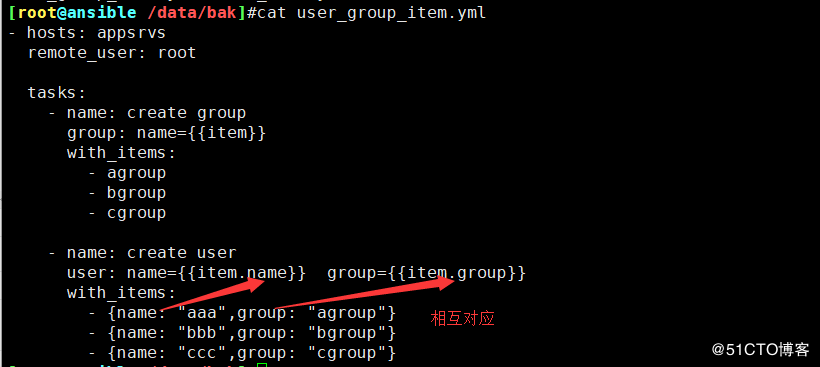
templates使用
1 |
|
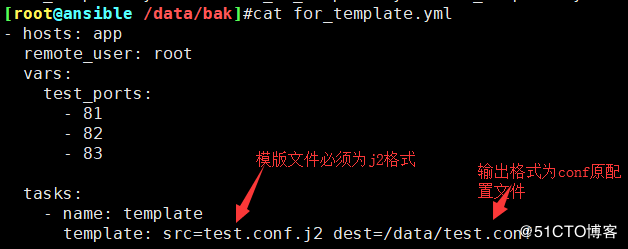
1 | {%for i in test_ports %} |